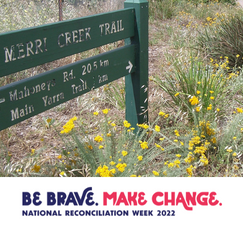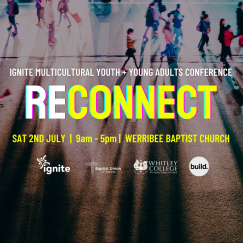12th September 2017
Family Violence in Kinship Care: It’s Been an Absolute Nightmare
New study finds significant levels of family violence in kinship care, with biological mothers of children in care the most common perpetrators
Baptcare has released harrowing research findings opening the door on the extent of violence experienced by carers and children involved in kinship care placements in Victoria.
The research surveyed over 100 carers currently involved in kinship care, with recruitment specifically targeted at carers who had a direct experience of family violence during their placement.
Some of the key findings included:
The main perpetrators of the family violence were the child’s mother , the child being cared for and the child’s father .
Family violence was often directed towards more than one family member, including the carer, child in care and the partner of the carer.
Around half of the carers surveyed reported having direct experience of physical abuse and violence since the placement had begun, with pushing, shoving, being punched or having something thrown at them the most common types of violence and abuse.
Threats of psychological and emotional violence were also evident with 25 carers threatened with their life, 40 threatened to be hurt, and 24 threatened with a knife or weapon. A staggering 18 carers reported that threats were made to hurt the child they were caring for.
Almost one third of carers did not report the violence to authorities. This was mainly due to fear of inappropriate intervention by authorities (such as removal of the child), fear of triggering further violence by the perpetrator and fear for the child’s safety.
Baptcare General Manager of Mission Development Olivia Maclean recognised the study for providing a greater understanding of how family violence directed towards kinship care placements was impacting children and families in kinship care.
“Clearly this is disturbing reading, however it provides us a rare glimpse inside the homes of many of the most vulnerable Australian children,” she said. “The potential size of this problem is significant – its web is likely to impact hundreds of thousands of Australians.
“Through this research we hope to identify ways to reduce the incidence of family violence, and provide higher levels of care and support for all involved.
“Out of the darkness and despair of this study, we hold hope that more can be done by government and the sector to provide solutions to reduce the violence, and better support its victims.
“The provision of support to kinship carers in widely regarded as inequitable in comparison to foster care, and the results of this research reinforce this fact,” she said. ”We’ve all been talking about this for too long – it’s now time to act and do something about it.
“Baptcare is keen to collaborate with kinship carers, the government and the sector to provide solutions to the issues identified in this research,” said Maclean.
The study found the impact of this violence is significant. For the children, it was creating stress and anxiety, psychological issues, behavioural problems, trauma, the child being unusually clingy, sleeping difficulties, problems at school and a reluctance to see their parents. For carers, it resulted in stress and anxiety, impacts on mental and physical health, conflict with family and a sense of powerlessness.
As the peak body for child and family services in Victoria, the Centre for Excellence in Child and Family Welfare has been supporting children and families and the organisations that work with them for over 100 years. Speaking at the launch, CEO Deb Tsorbaris welcomed its publication.
“We are pleased to be launching this report on behalf of Baptcare and The University of Melbourne, and welcome all new research into the challenges and needs of kinship carers and young people in Victoria,” she said. “This report is particularly timely given the ongoing Royal Commission into Family Violence, and will assist the sector in assessing the unique needs and support requirements of kinship families.
“It is crucial for the sector to ensure that carers, young people and families are given a voice to share their lived experiences. The Centre will work closely with organisations across the sector to provide greater support to kinship families and young people in Victoria.”
Baptcare conducted the study as part of its advocacy commitment to kinship care. The research was designed to gain a better understanding of how family violence directed towards kinship care placements were impacting children and families in kinship care. It was conducted in 2016 and 2017.
‘Kinship care’’ refers to the care provided by relatives or members of the child’s social network when a child is unable to live at home with their parents, and is the preferred placement option within the child protection system. Currently there are 20,528 Australian children living in formal kinship care placements, and studies in the area suggest that informal kinship care may be three times more common and these prevalence rates continue to rise.
Click here to read the report.











